Donald Trump visited Saudi Arabia over the weekend on his first official foreign trip, signing a $100 billion arms deal and offering support for a new regional order in the Middle East. Meanwhile, the press focused on the First Lady and Daughter’s decision not to wear a headscarf.
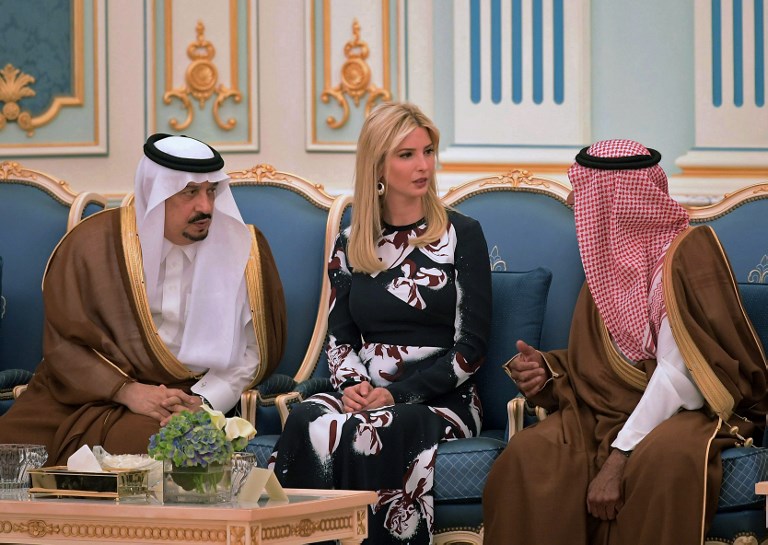 Ivanka and Melania Trump’s decision to forgo wearing the customary headscarf has been widely reported on (image: Times of Israel)
Ivanka and Melania Trump’s decision to forgo wearing the customary headscarf has been widely reported on (image: Times of Israel)
Headlines read “Melania and Ivanka Trump arrive in Saudi Arabia sans headscarves” and “Melania Trump says no to headscarf in Saudi Arabia visit”, despite the fact that wearing a headscarf is not a legal requirement in Saudi Arabia, rather a conservative social norm sometimes enforced by the religious police. Trump had previously tweeted (of course) his disapproval of Michelle Obama for doing the same in 2015, and the media rightly cited the apparent hypocrisy of the First Lady and Ivanka’s decision. However, this ‘story’ massively overshadowed the more important – and alarming – outcomes of the Trumps’ visit.
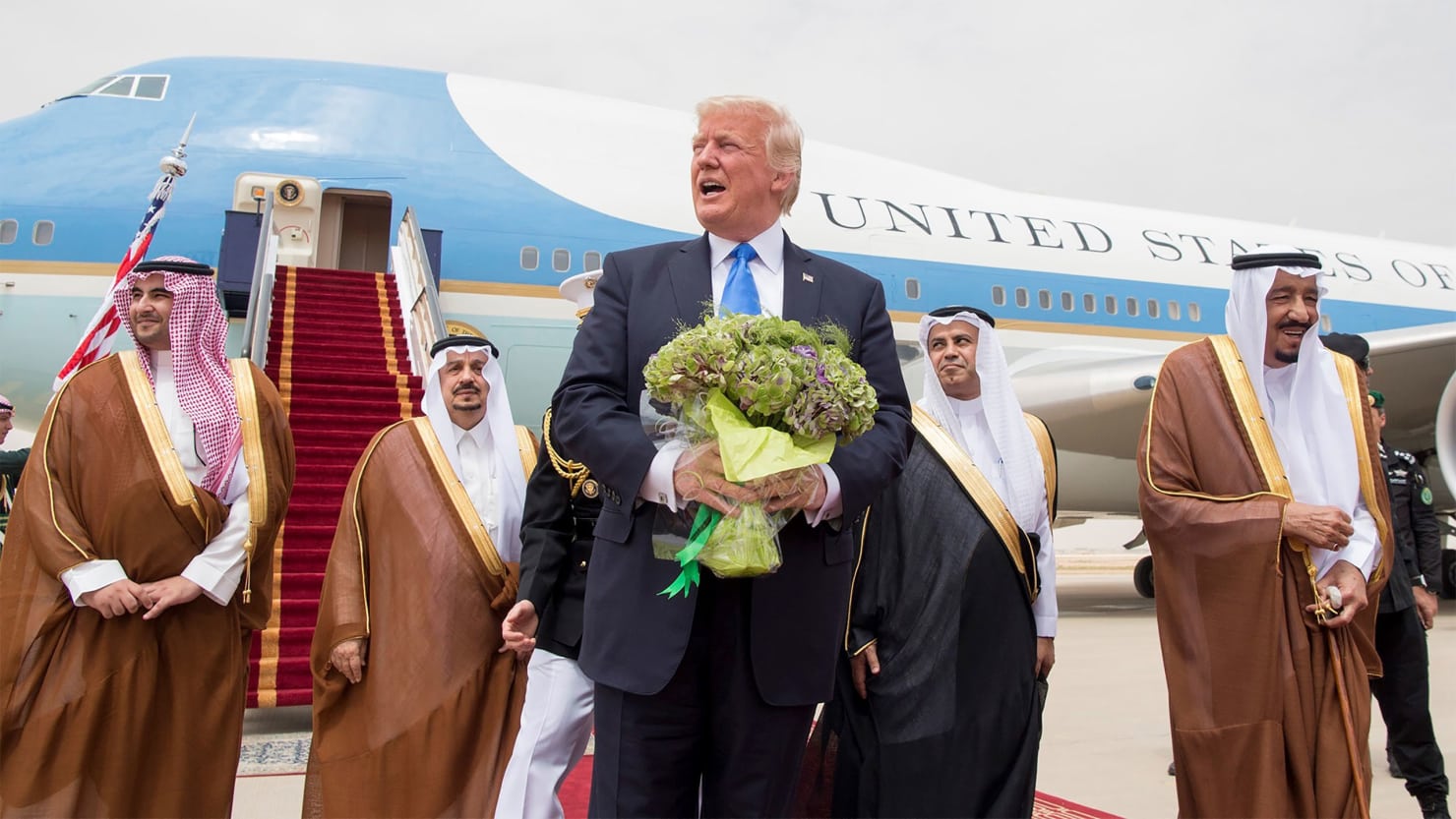 Donald Trump disembarks from Air Force One in Riyadh (image: The Daily Beast)
Donald Trump disembarks from Air Force One in Riyadh (image: The Daily Beast)
The President confirmed during the trip the signing of a weapons deal with the Saudi government worth $109.7 billion, which had been quietly negotiated by a team led by Trump’s senior adviser and son-in-law Jared Kushner in the wake of the election. The deal would support plans recently discussed by the Trump administration and the Saudi government for the formation of a coalition of Sunni Arab countries that would resemble a NATO-like organisation in the Middle East.
This would theoretically enable these states – led by the governments of the Gulf – to police the region themselves and take responsibility for its security, with the intention of ending US military engagement in the region. While this might sound good on paper, it would depend heavily on the provision of funding and arms from the US and the West and could have a dangerous effect on regional politics, human rights and global security.
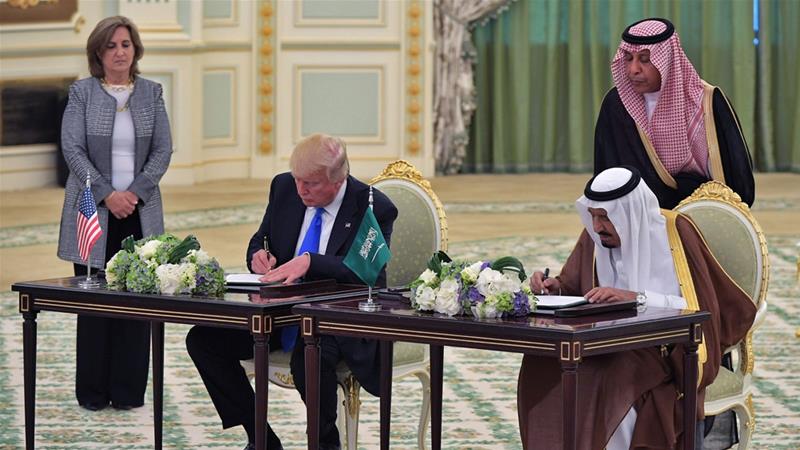 Trump signs a $100 billion arms deal with Saudi Arabia (image: Al Jazeera)
Trump signs a $100 billion arms deal with Saudi Arabia (image: Al Jazeera)
The controversy surrounding Saudi Arabia and its allies’ involvement in conflicts abroad – notably accusations of war crimes committed by the Saudi-led coalition in Yemen – casts a dark shadow over consignments of Western arms to the Kingdom and its regional partners. Moreover, such an alliance would purposefully alienate Saudi Arabia’s adversary, Iran. America’s involvement in its formation could therefore lead to the unravelling of the nuclear deal reached with Iran in 2015.
Overall, the trip signalled the strengthening of relations between the US and Saudi Arabia, as the President cosied up to a regime he recently accused of masterminding 9/11, killing gay people and enslaving women. King Salman even bestowed upon Trump the King Abdulaziz al Saud Collar – the Kingdom’s highest civilian honour, previously given to Vladimir Putin, Theresa May and Barack Obama – in a ceremony in Riyadh. According to the speaker at the ceremony, the President was being honoured for his efforts to strengthen the relationship between the US and Saudi Arabia, “and his quest to enhance security and peace… in the region and the world”.
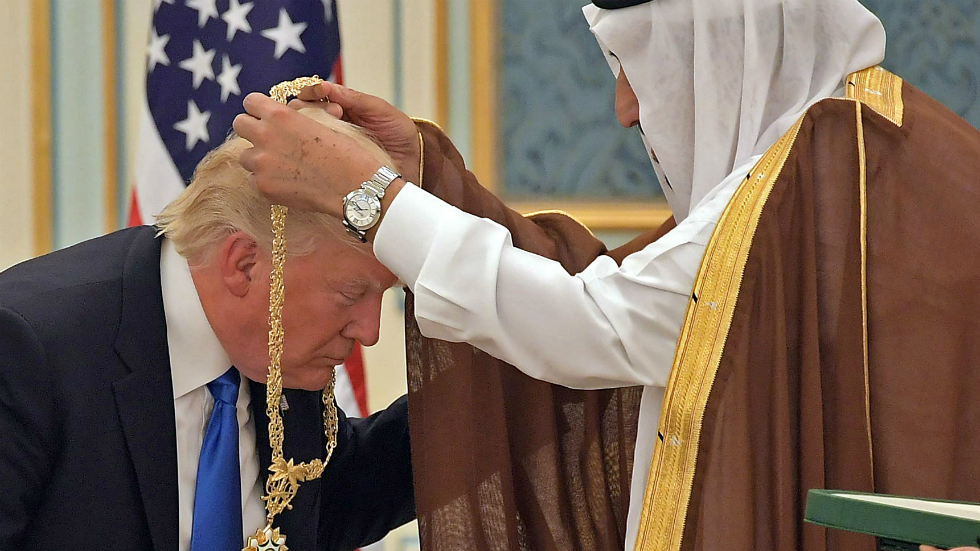 Trump received the King Abdulaziz al Saud Collar – the Kingdom’s highest civilian honour (image: The Hill)
Trump received the King Abdulaziz al Saud Collar – the Kingdom’s highest civilian honour (image: The Hill)
Despite Trump’s anti-Saudi rhetoric during the election campaign, this show of appreciation comes as no surprise. Trump’s election has been widely viewed with optimism by leaders and observers in the Middle East who feel let down by the Obama administration, which failed to deliver on many of its promises for the region. Regional players see Trump as more willing to act than his predecessor on issues such as regional terrorism and Iranian encroachment on regional politics.
The president made this clear in a speech given in Riyadh on Sunday, in which he urged Muslim leaders to purge their societies of “Foot Soldiers of Evil” in order to “drive the terrorists out of this Earth”. This is problematic due to the tendency of the Saudi regime to label all opposition and dissent as terrorism, with grave consequences for human rights and freedom of expression. To Riyadh’s delight, Trump also made sure in his speech to clarify his position on Iran, declaring that “all nations of conscience must work together to isolate” the Islamic Republic.
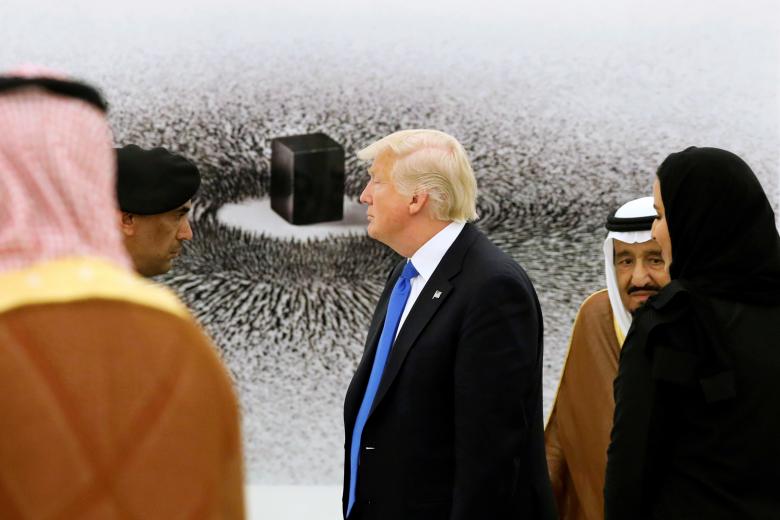 Trump stands in front of a picture of the Kaaba at Mecca, one of Islam’s holiest sites (image: Reuters)
Trump stands in front of a picture of the Kaaba at Mecca, one of Islam’s holiest sites (image: Reuters)
After the end of an administration characterised by reluctance and unwillingness to act, Trump’s stance signals a new era of American foreign policy in the Middle East, where the White House is willing to gloss over issues of human rights in order appear strong and decisive. This is not a new strategy in the region, but echoes years of Western governments taking sides in regional conflicts based on their own interests at the time, with only a superficial interest in the people most affected. The results, historically, have been explosive – the wars we see in Syria, Iraq and Yemen are testament to that. There is little to suggest that this will be any different.

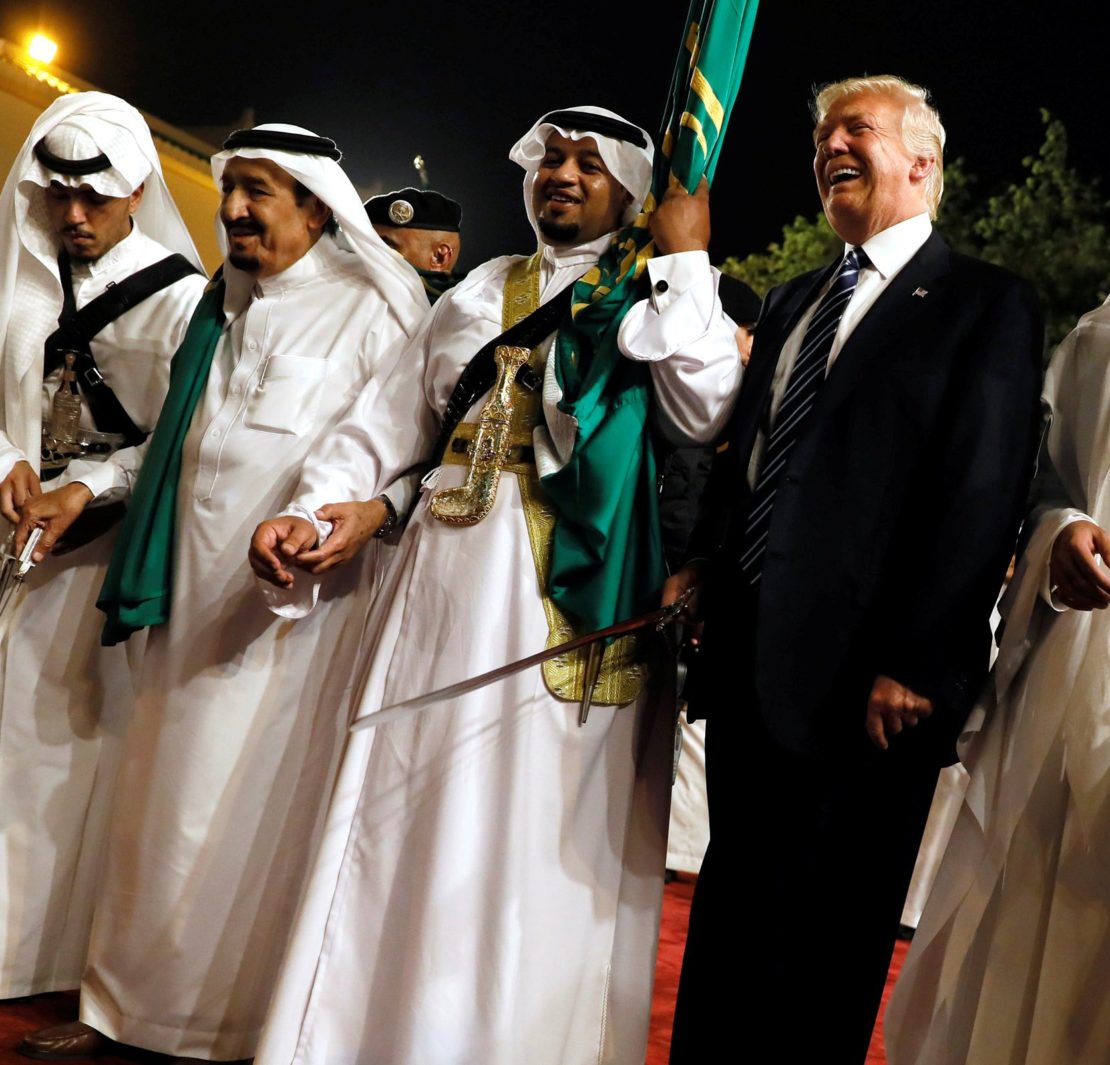

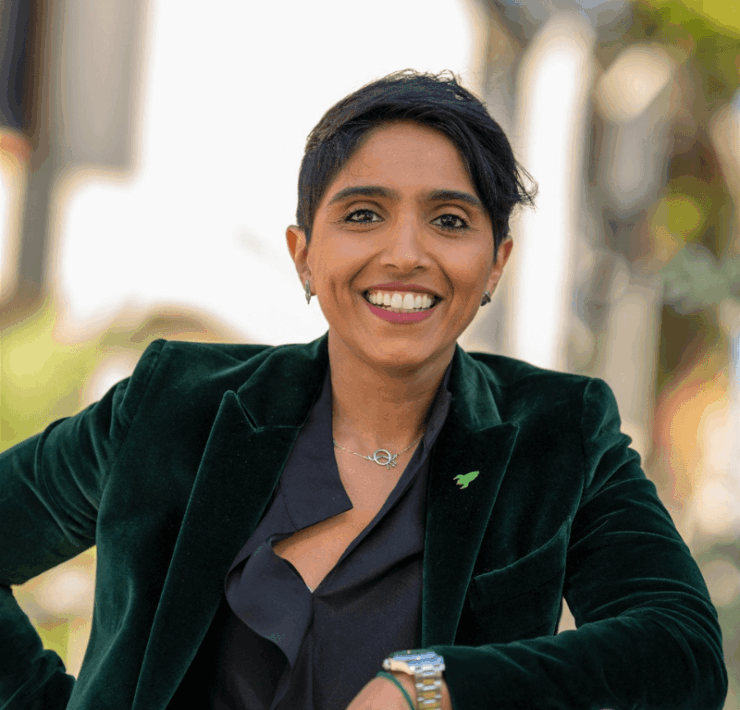

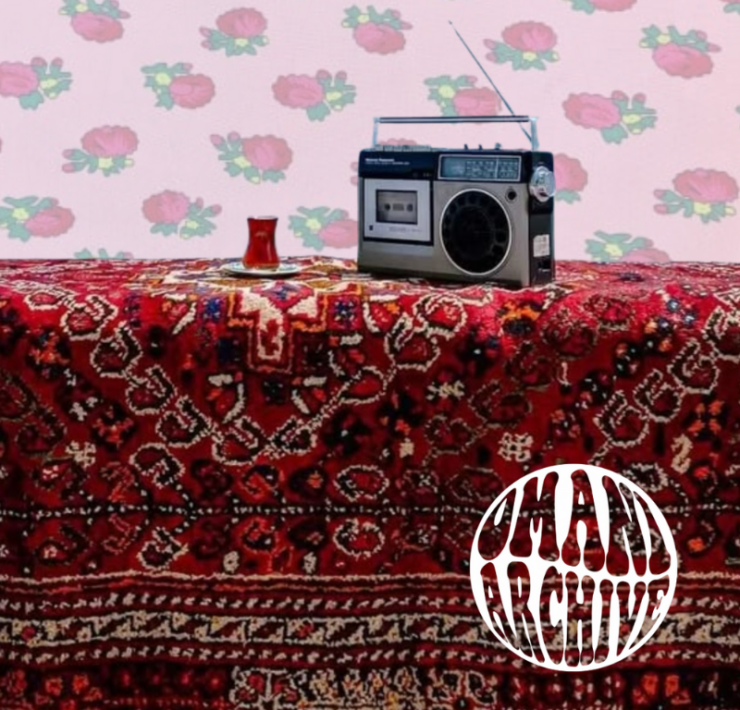

Most honest reading of the visit so far (Zainab).